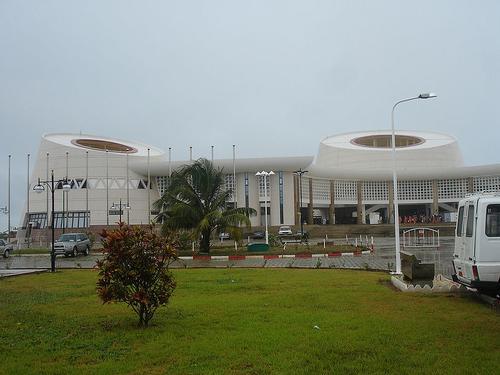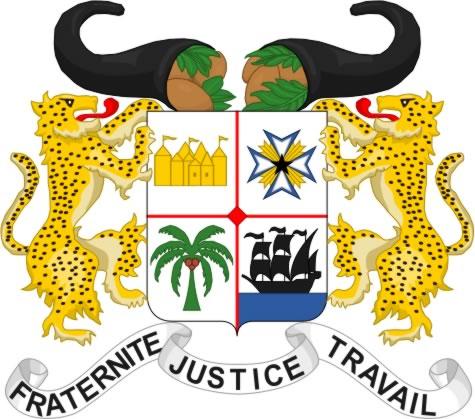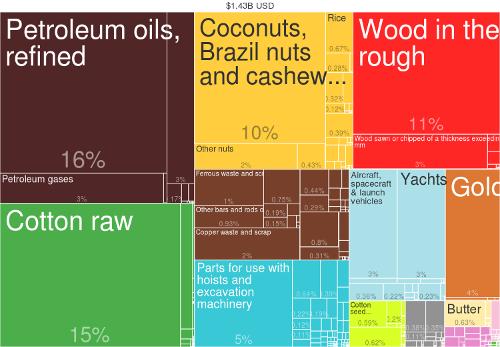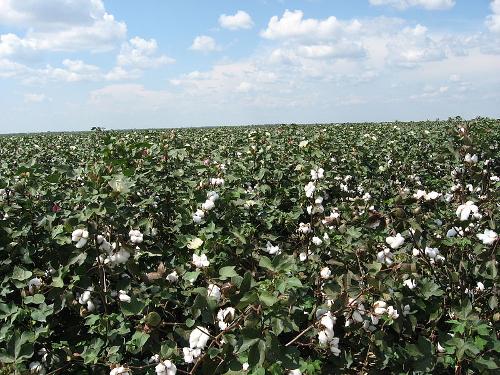BENIN
Society

Society
Society
State structure

The 1990 constitution is based on the principle of multiparty democracy and provides for presidential elections every five years, with the president eligible for re-election only once. President Kérékou started his last five-year mandate in April 2001. Although there was some uncertainty about a possible third term in office, the President officially declared at the end of 2005 that he would not stand for re-election in 2006. In the first months of 2006, however, there were clear signs that the ruling circles around the president had an interest in it. to postpone the elections, so that Kérékou could stay on for longer. In January 2006, the president appointed a new Minister of State, Martin Azonhiho, also in charge of national defense, who is known to support the postponement of the elections. Despite all these omens, the election finally took place with a clear winner, Dr. Thomas Boni YAYI, inaugurated on April 6, 2006.
Benin has a presidential system, which is more similar to the United States and the parliamentary systems in Western Europe. The president has great executive power, including the right to suspend parliament. The parliament consists of 83 members. Parliamentary elections are held every four years. Members of Parliament can be re-elected an unlimited number of times. The constitution provides for several organs to limit presidential power. There is a Constitutional Court, a Cour Suprême, a Court of Audit (falls under the Cour Suprême). The Haute Cour de la Justice, established in 2000, is competent for litigation involving the President, the government and the Speaker of Parliament. There is an Economic and Social Council, the Haute Autorité de l'Audiovisuel et de la Communication, a 9-member body that supervises the media and an independent election commission, the CENA.
Politics

President Kérékou's political base was based on a coalition of a large number of smaller political parties and mainly controlled the sparsely populated predominantly agricultural northern departments and the south-west of the country. This coalition had a parliamentary majority, the Mouvance présidentielle. The Mouvance was divided into 65 seats with 4 fractions (out of a total of 83). The UBF (Union pour le Benin du Futur) is the largest party in this. Bruno Amoussou (PSD), is one of the most important politicians and ex-Minister of Planning and Development. Houngbedji (ex-Speaker of Parliament), Bruno Amoussou (PSD), current Speaker of Parliament, Antoine Kolawolé Idji, Thomas Boni Yayi, former President of West African Development Bank and Lehady Soglo, son of former President Soglo were the most important presidential candidates.
Although ethnic and regional origin play an important role in politics, the Beninese is peaceful and tolerant. Various peoples are united in Benin, each of which has its own language and customs. There is also great tolerance in the religious field. Animists, Christians and Muslims live side by side and with each other, without any significant frictions. Freedom of expression is one of the great achievements of this country. Politicians are being targeted, corruption scandals are widely reported in the press. Even the head of state can be mocked and criticized in the press. There are no political prisoners. However, the independence of the media is limited by the fact that financiers have a decisive voice in editorial matters.
There is broad political agreement to continue the structural reforms initiated in the 1990s under the influence of the IMF and the World Bank. These include further liberalization of the economy, privatization of state-owned enterprises and the progress of fiscal reform. The World Bank has made funds available for this purpose. The reform of the public administration is currently stalling, in particular due to resistance from the trade unions. Benin is regarded by the International Financial Institutions as one of the best students in the macroeconomic field. Until 2006, the World Bank will make an important financial contribution to the implementation of the Poverty Reduction Plan (PRSP). Since March 2003, the country has also been eligible for significant debt relief.
The first deal under the Poverty Reduction Growth Facility (PRGF) in Benin, approved on July 17, 2000 for an amount of 27 million SDR (37.4 million dollars) was extended until 31 March 2004. A second PRGF (duration 2005 –2008) was approved on August 5, 2005 for a total amount of 6.19 SDR. / ± EUR 7.4 mln. The programs supported by PRGF are based on the national strategy for poverty reduction, in this case the Poverty Reduction Strategy Paper (PRSP). The aim is to ensure that the programs supported by PRGF fit into the whole of macroeconomic, structural and social policies that stimulate growth and therefore use poverty reduction. In 2004, the World Bank provided support worth EUR 17.8 million under the first poverty reduction strategy loan (PRSC-1). For 2005, support worth US $ 30 million (= EUR 26.68 million) Has been approved. The intended support for 2006 is estimated at 31.25 euros.
The fact that decentralization is accompanied by a corresponding drastic redistribution of power means that those who are in control are not all equally enthusiastic about this process, although 12 years after the policy decision to implement it, at least among the Beninese people and their local elected representatives, has raised expectations and appears to be irreversible.
Corruption is a major problem and has permeated all sections of society. The fight against corruption has - verbally - an important place, effective measures and results have so far lagged behind rhetoric. The new president has indicated that he sees this file as an immediate priority for the country, as economic development and, as a result, poverty alleviation depend on it. It is still too early to say whether the new 'Observatoire de lutte contre la corruption' will bring about any real improvement. An important administrative innovation which was further introduced by the new president and which may have a positive effect on this theme is the fact that the formerly independent ministerial post for Public Works and Transport has now become a Minister without portfolio under the president. This will allow the necessary rationalization of the practice of public procurement, which is plagued by corruption
For the current political situation see chapter history.
Economy
 Benin ExportPhoto: Celinaqi CC 4.0 International no changes made
Benin ExportPhoto: Celinaqi CC 4.0 International no changes made
The devaluation of the Franc CFA in January 1994 has improved Beninese competitiveness against regional and international markets. However, the TEC, the common external tariff, has had a strong inhibiting effect on Beninese exports (mainly re-exports) to neighboring countries. The anticipated impetus to be given by the TEC to intra-Community trade has not yet been achieved.
Trade and services is the most important economic sector. According to official figures, the tertiary sector accounts for 51.3% of GDP (2017). However, this presents a distorted picture, as the Beninese economy is largely informal. In addition, agriculture (25.6% of GDP (2017) and especially cotton production (31% of exports) is an important pillar of the economy. Benin does not yet generate sufficient financial resources of its own and relies heavily on foreign donor capital.
In Europe, the EU is the most important trading partner (97% of imports), in Africa, the region is particularly important.
From a macroeconomic perspective, the country is reasonably healthy, but the economy is currently in a dip, mainly due to problems in the cotton sector. Economic growth amounts to 5.6% (2017). Financial management is tight and the state's housekeeping book is in order. However, the level of public investment is insufficient to generate economic growth that is powerful enough to break the cycle of poverty. Major economic reforms remain necessary, transparency must be increased, corruption reduced, and trade and investment barriers removed. A budget reform has already brought about significant improvements and should be further developed in the coming years. The efficiency measures that will be implemented within the ministries must also be mentioned in this context. Inflation has been contained in recent years, despite the sharp increase in fuel prices and higher import tariffs. Benin thus remains within the framework of the West African Monetary Union.
 Benin Cotton fieldsPhoto: Ken Lund CC 2.0 Generic no changes made
Benin Cotton fieldsPhoto: Ken Lund CC 2.0 Generic no changes made
It is of the utmost importance to the economic development of Benin that the liberalization and privatization processes (in particular the cotton sector, textiles, telecommunications, energy and water, port, hotels), initiated since 1990 as part of the structural adjustment process now finally be completed. The cotton sector has been in a problematic phase since 2004 due to internal disorganization, low prices on the world market and a low dollar exchange rate. Implementation of the privatization program has been delayed.
Sources
Elmar Landeninformatie
CIA - World Factbook
BBC - Country Profiles
Copyright: Team The World of Info